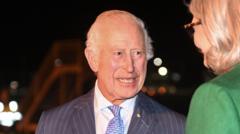Despite pressures from Labour MPs urging the UK government to formally apologize, including calls from MP David Lammy for reparations, the stance remains unchanged from the previous administration. While some argue that Britain played a significant role in abolishing slavery, there are ongoing discussions regarding reparations, led by various Caribbean leaders at the summit.
Public opinion on the necessity of an apology remains divided, with some individuals arguing that modern generations should not be held accountable for past actions, while others believe that an official acknowledgment of wrongdoing is essential for healing historical wounds.
In conclusion, as the Commonwealth summit draws near, the UK's refusal to issue an apology for its slave trade history highlights an ongoing debate within the country, reflecting deep-seated divisions among citizens regarding accountability for historical injustices. The summit will also address pressing contemporary issues among Commonwealth nations.
Public opinion on the necessity of an apology remains divided, with some individuals arguing that modern generations should not be held accountable for past actions, while others believe that an official acknowledgment of wrongdoing is essential for healing historical wounds.
In conclusion, as the Commonwealth summit draws near, the UK's refusal to issue an apology for its slave trade history highlights an ongoing debate within the country, reflecting deep-seated divisions among citizens regarding accountability for historical injustices. The summit will also address pressing contemporary issues among Commonwealth nations.



















